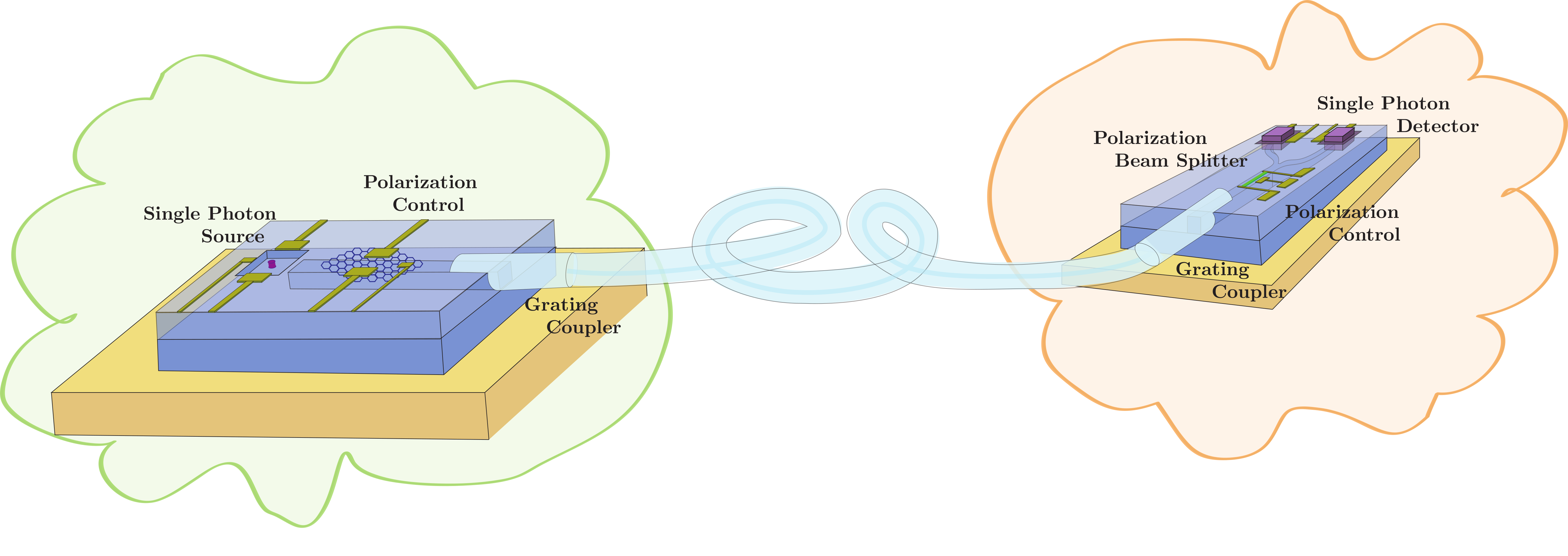
For several decades we have exploited devices such as transistors and lasers that represented the "First Quantum Revolution", since their functioning can be explained only using quantum mechanics. Science is now facing the "Second Quantum Revolution" in which the bizarre features of quantum mechanics such as superposition, non-locality and entanglement are used for achieving performances unattainable if using only classical states of matter and light.
Students of the track in Quantum Technologies of the Master Degree in Physics at the University of Camerino will acquire unique skills and become actors of the international endeavour towards practical quantum computers, a quantum Internet and exquisitely accurate quantum sensors.
Physics in Camerino has a longstanding research activity in Quantum Technologies, focused in particular on the exploitation of photons, trapped particles, superconducting systems and nanomechanical resonators for quantum information processing tasks.
Since 2018 the University of Camerino has a partnership with the University of Napoli Federico II, and the National Council of Research (CNR) in the Ph.D. Program on "Quantum Technologies" aiming at at the acquisition of interdisciplinary skills useful to the development of quantum devices and technologies.
Topics
Experimental Quantum Technologies
Realization of ultrasensitive quantum sensors of force and displacements with optical cavities coupled to nanomechanical membranes and/or superconducting radiofrequency circuits, operating either at room temperature or in ultracryogenic environments. These sensors can be used also for fundamental tests of quantum physics and of the fundamental interactions.
Controlled bidirectional transduction of quantum signals between the optical to the radio-frequency domain.
Design, simulation, and characterization and test of quantum gates for photonic implementations of quantum computing and quantum communication.

Theoretical Quantum Technologies
Design and theoretical analysis of novel schemes for quantum sensing of forces and displacements by means of hybrid quantum devices based on optical, microwave/radio-frequency resonators, trapped particles and superconducting circuits.
Design and theoretical characterization of quantum entanglement for the realization of quantum interfaces and for the detection of distant or hidden targets ("quantum radar").
Exploitation and optimization of noisy intermediate-scale quantum (NISQ) devices and algorithms.
| Typology | CFU | Course |
| Compulsory | 30 | Advanced electromagnetism (6 CFU) |
| Advanced physics laboratory (6 CFU) | ||
| Machine learning (6 CFU) | ||
| Solid state physics (6 CFU) | ||
| Theoretical physics (6 CFU) | ||
| Recommended | 30 | Atomic physics (6 CFU) |
| Physics of nanotechnology (6 CFU) | ||
| Quantum computation (6 CFU) | ||
| Quantum optics (6 CFU) | ||
| Statistical mechanics (6 CFU) | ||
| Elective | 12 only | Experimental nanoscience (6 CFU) |
| Artificial Intelligence Lab (6 CFU) | ||
| Quantum information (6 CFU) | ||
| Stochastics methods and modelling (6 CFU) | ||
|
|
||